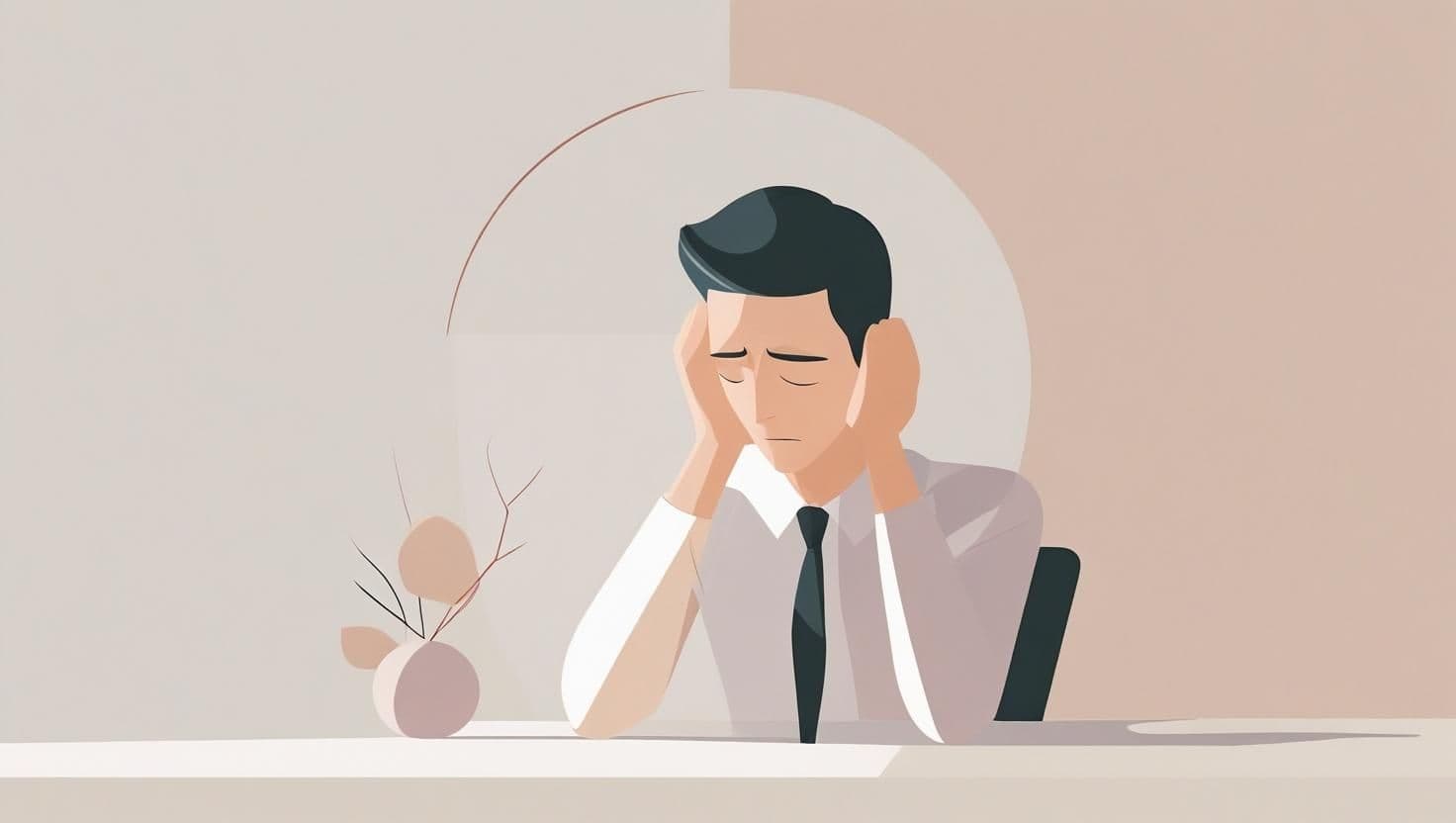The 10 Best Answers to How to Deal with Stress

Stress hits everyone. Whether it's work deadlines, family issues, or daily pressures, we all need good ways to handle it. The key isn't avoiding stress completely - it's learning how to manage it well.
Research shows that how we respond to stress matters more than the stress itself. Dr. Kelly McGonigal, a health psychologist at Stanford, found that people who view stress as helpful rather than harmful live longer and feel better.
This guide gives you ten proven answers to dealing with stress. These methods work for different people and situations. Some might work better for you than others, so try a few and see what fits.
Why Good Stress Management Matters
Before we dive into solutions, let's understand why stress management is so important. According to the CDC, everyone experiences stress, and long-term stress can worsen health. Poor stress handling can lead to:
- Sleep problems
- Health issues like headaches and stomach problems
- Trouble focusing at work or school
- Relationship strain
- Feeling overwhelmed or burned out
On the flip side, good stress management helps you:
- Stay calm under pressure
- Make better decisions
- Keep your energy up
- Build stronger relationships
- Feel more confident
As stress management experts note, everyone manages stress differently, and taking small steps in your daily life to manage stress can have a big impact.
The 10 Best Ways to Handle Stress
1. Practice Deep Breathing
Deep breathing is one of the fastest ways to calm down when stress hits. It works by slowing your heart rate and telling your brain to relax. The Mental Health Foundation emphasizes that mindfulness for stress management is a simple tool that can be practiced anywhere, at any time.
How to do it:
- Breathe in slowly through your nose for 4 seconds
- Hold your breath for 2 seconds
- Breathe out through your mouth for 6 seconds
- Repeat 3-5 times
This simple technique works anywhere - during a tough meeting, before a big presentation, or when you feel overwhelmed at home.
2. Break Big Problems into Small Steps
When facing a huge task or problem, it's easy to feel paralyzed. The solution is to break it down into smaller, manageable pieces. This approach is supported by research from Care Clinics, which shows that setting realistic goals and breaking tasks into smaller steps is highly effective.
Example approach:
- Write down the main problem
- List 3-5 smaller tasks that move you forward
- Focus on just one small task at a time
- Celebrate each small win
This method makes big challenges feel less scary and gives you a clear path forward.
3. Use the "Stress Pause" Technique
When stress peaks, take a deliberate pause before reacting. This simple step can prevent stress from making situations worse.
The process:
- Notice when stress is building
- Stop what you're doing for 30 seconds
- Take three deep breaths
- Ask yourself: "What's the best way to handle this?"
- Then act with intention, not reaction
4. Create Healthy Boundaries
Many people feel stressed because they take on too much. Learning to say "no" and set limits protects your time and energy.
Boundary examples:
- Not checking work emails after 7 PM
- Limiting time spent on social media
- Saying no to extra commitments when your plate is full
- Taking lunch breaks without working
Remember: Setting boundaries isn't selfish - it helps you perform better in all areas of life.
5. Focus on What You Can Control
Stress often comes from worrying about things outside our control. Shifting focus to what you can influence reduces anxiety and increases effectiveness.
| Can Control | Can't Control |
|---|---|
| Your response | Other people's actions |
| Your preparation | The weather |
| Your effort | Traffic delays |
| Your attitude | Company decisions |
| Your choices | Past events |
When stress hits, ask yourself: "Is this something I can control?" If yes, make a plan. If no, focus your energy elsewhere.
6. Build a Support Network
Having people to talk to makes stress much easier to handle. Research on children and adolescents shows that family, peers, health services, professionals, teachers, and animals were identified as important coping resources, with trust and relatability being key factors.
Ways to build support:
- Maintain close friendships
- Join groups related to your interests
- Connect with colleagues you trust
- Consider talking to a counselor or coach
- Stay in touch with family members who understand you
7. Use Physical Activity as Stress Relief
Exercise is a powerful stress reducer. It releases endorphins (feel-good chemicals) and gives your mind a break from worries. According to Virtua Health, exercise can be a great stress reliever that releases endorphins and helps you blow off steam.
Effective options:
- Take a 10-minute walk during stressful moments
- Do quick stretches at your desk
- Try yoga or meditation
- Dance to your favorite music
- Go for a bike ride or swim
You don't need intense workouts - even light movement helps reduce stress hormones in your body. Even short, daily walks can make a significant difference in managing stress.
8. Practice the "Good Enough" Mindset
Perfectionism creates unnecessary stress. Sometimes "good enough" really is good enough, and recognizing this can free up mental energy for what truly matters.
When to apply this:
- Routine tasks that don't need perfection
- First drafts of projects
- Daily household chores
- Social media posts
- Small decisions with low consequences
Save your perfectionist energy for things that really count.
9. Develop a Stress Recovery Routine
Just like athletes need recovery time, you need ways to bounce back from stressful periods. Having a go-to routine helps you reset faster. The Mental Health Foundation reminds us that it's important to be kind to yourself during stressful moments.
Sample recovery activities:
- Take a warm bath or shower
- Listen to calming music
- Read a book you enjoy
- Call a friend who makes you laugh
- Spend time in nature
- Practice gratitude by listing three good things from your day
The key is finding what genuinely helps you relax and making it a regular practice.
10. Reframe Stress as Challenge
This final approach changes how you think about stress itself. Instead of seeing stress as purely negative, view it as a sign that you're growing and facing important challenges.
Helpful reframes:
- "This stress means I care about doing well"
- "I can learn something valuable from this situation"
- "This challenge will make me stronger"
- "I've handled difficult things before"
Research shows that people who view stress as enhancing rather than debilitating perform better and feel more confident.

When to Seek Additional Help
While these ten strategies help most people manage stress better, sometimes you need extra support. Consider talking to a professional if:
- Stress interferes with sleep for more than a few weeks
- You feel overwhelmed most days
- Stress affects your relationships or work performance
- You're using unhealthy coping methods (like too much alcohol)
- Physical symptoms persist (headaches, stomach issues)
For more comprehensive guidance, you can explore resources from HelpGuide.org, which offers various stress management techniques and emphasizes that we all respond to stress differently.
Building Your Personal Stress Management Plan
To make these strategies work for you:
- Pick 2-3 methods that appeal to you most
- Practice them when you're calm, not just during crises
- Start small - even 5 minutes of practice helps
- Be patient with yourself as you build new habits
- Adjust techniques based on what works best for your lifestyle
The Bottom Line
Dealing with stress effectively isn't about eliminating it completely - it's about developing healthy responses that help you stay balanced and perform well. These ten approaches give you a toolkit to handle whatever life throws your way.
Remember that everyone's stress is different. What works perfectly for your friend might not work for you, and that's normal. The goal is finding your own combination of techniques that help you feel more in control and confident.
Start with one or two methods that seem most doable for your current situation. Practice them regularly, and gradually add more tools to your stress management toolkit. With time and practice, handling stress becomes easier and more automatic.
Stress may be unavoidable, but suffering from it isn't. You have more control over your stress response than you might think - and that's empowering knowledge to carry with you.